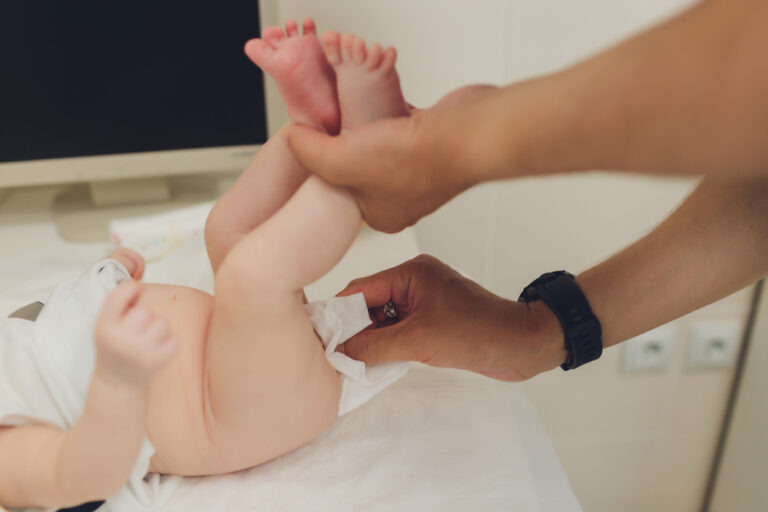By recommending that parents should get their baby’s permission before changing their diapers, an Australian “sexuality educator” has ignited a contentious internet discussion.
Deanne Carson’s viewpoint, which seeks to instill a “culture of consent” from infancy, has drawn interest as well as doubt. Funny comments were made by some internet users, one of whom inquired as to whether they should also “get consent from their cat to change the litter tray.”
Discussions about consent are expanding into previously unexplored areas, such as diaper changes, in the quickly changing world of parenting today.
Given that neonates are unable to answer verbally, asking an infant for permission may seem impracticable, but Carson stresses that the goal is to instill the concepts of consent and respected limits at a young age.
Carson, who calls herself a “sexuality educator, speaker, and author” on social media, maintains that establishing a foundation of respect and communication for future interactions begins with teaching consent.

According to Deanne Carson, the main goal of her recommendation is to promote respect for a child’s autonomy and body. Even very young children can be introduced to the idea of personal agency by their parents by describing their actions, such as “I’m going to change your diaper now, is that okay?” and stopping to watch their body language.
Developing Communication and Trust
According to Carson, the goal of this method is to establish a two-way communication channel rather than wait for a newborn to say “yes” out loud.
Carson clarified in an interview with Australia’s ABC network that a newborn won’t respond, “Of course, mum, that sounds fantastic; I’d love to have my nappy changed.” “However, you’re telling the child that their response counts if you stop, look them in the eye, and pay attention to their body language.”
Pediatricians and early childhood specialists advise responding to a baby’s non-verbal signs, such coos, movements, and giggles, and this approach is in line with their recommendations. Carson contends that including the infant in rituals like changing diapers, even in tiny ways, and incorporating permission helps promote awareness.
Controversy and Criticism
But not everyone supports Carson’s strategy. Critics call it overkill and contend that it is unnecessary and unrealistic to question an infant for consent.
The Spectator Australia’s editor Rowan Dean referred to it as “lefty lunacy,” while parenting columnist and psychologist John Rosemond denounced Carson’s concept as “the most bizarre of all time.”
Rosemond stated in the Reno Gazette Journal, “Not long ago, anyone proposing that parents ask infants for consent to change diapers would have been dismissed as deranged.” “Carson’s so-called ‘culture of consent’ runs the risk of fostering dysfunctional, unclear, and distrusting family dynamics.”
Online Mockery
Online responses to Carson’s comments were swift, with many people mocking her theories and casting doubt on her knowledge.
“I think a crying baby with a full diaper is giving consent—more like a demand,” one commentator said. Another said, “It’s obvious that this so-called ‘expert’ has no experience with children.” Infants require care, not consent.
Others questioned Carson’s suggestion’s viability. Does changing your cat’s litter box require their permission? No. Clean it if it smells. “The same is true for a baby,” one commenter commented. “Leaving a baby in a dirty diaper is legally recognized as child abuse,” said another commenter. Does this “expert” support carelessness? She poses a greater threat than anti-vaxers.
Although most people are still dubious of Carson’s methods, her remarks have spurred more extensive conversations on communication, parenting styles, and the idea of consent in spite of the criticism.
Even if Carson’s example was badly chosen, several people defended her, claiming that her intentions were excellent.
“I’m honestly surprised by the backlash you’ve received,” one commenter said. Before they can speak, infants and toddlers are good communicators. I appreciate you enduring the haters in order to start this conversation. What damage can come from teaching respect, even if your example isn’t flawless?
“Her example went too far,” another person continued, “but I think she’s trying to start a conversation about teaching consent to children.” Since they are still infants, they are unable to provide their consent. It is presumed that they are safe and have basic necessities.
A third person concurred with Carson, stating, “It’s easy to talk to your baby and create a consenting environment at home.”
Even though the topic of consent isn’t specifically discussed, most people feel that awareness and communication with infants are important.
In the end, different parenting philosophies and tastes may determine whether or not to “ask” for consent. Some see it as a means of fostering mutual respect and a loving bond with their child. Others may find it more natural to just watch, interact with, and react to a baby’s cues.
How do you feel with Carson’s recommendation that parents get their consent before changing a baby’s diaper? To get additional feedback, leave a comment and forward this tale!




